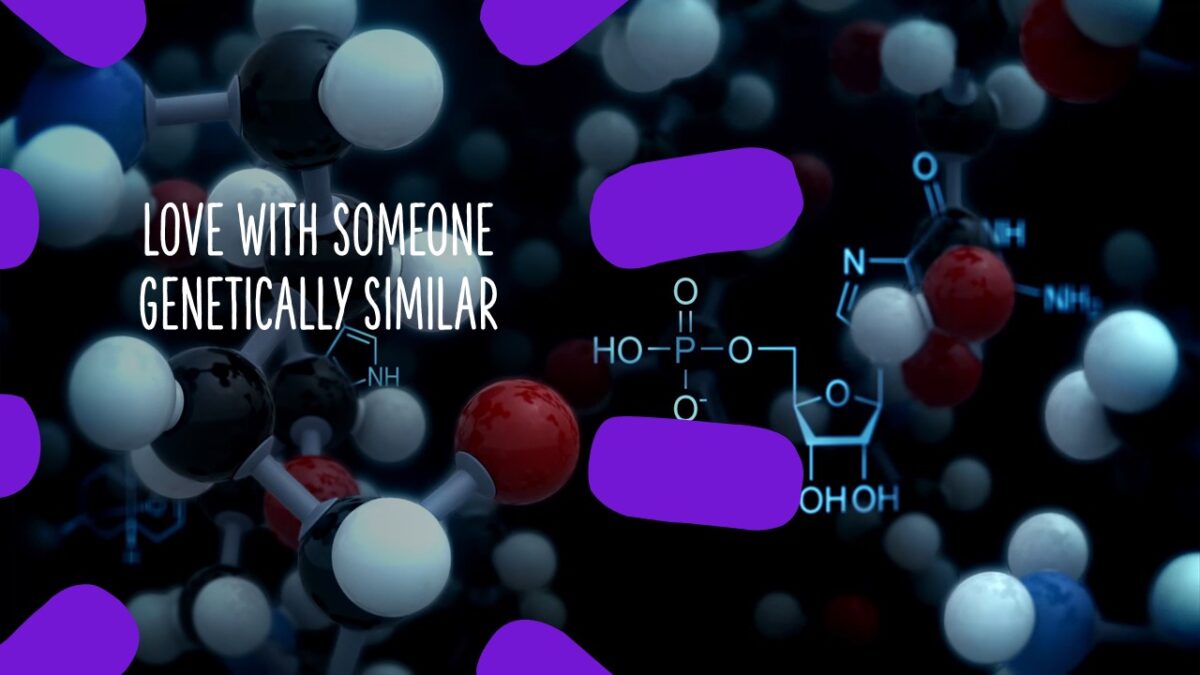This article explains the surprising findings of studies which show that you are more likely to fall in love with someone who has genetic similarities to you.
The Irresistible Attraction of Genetic Similarity
What is more attractive to a loving person: similarities or differences? What draws people to each other? Do they like those who resemble themselves, or do opposites attract? It is commonly known that “birds of a feather flock together.” Multiple studies have also provided evidence to support this similarity effect (see for review, Karandashev, 2019).
Studies have demonstrated that men and women tend to initiate relationships with those who resemble them in such characteristics as socio-economic status, income, ethnicity, religion, cultural identity, age, and even body type (Karandashev, 2022).
Generally, when it comes to race, ethnicity, or even size and shape, people tend to fall in love with those like themselves. Spouses tend to have a higher level of genetic similarity than two random strangers.
Are We Genetically Predisposed to Fall in Love?
The quality of our relationship is influenced by more than just our shared experiences with a partner. In evolutionary terms, establishing interconnectedness necessitates the display of similarities between organisms. In humans, we tend to select our mating partners according to the principle of optimal genetic similarity. Because sexually dimorphic animals like humans cannot produce healthy offspring with anyone, intersexual attraction aids them in the proper selection of a mate. It’s possible that biological evolution has created a psychological mechanism that unconsciously attracts us to mates who are similar to us while excluding those who are significantly different (Lampert 1997).
We tend to fall in love with others who are genetically similar to us and look alike. We are drawn to each other subliminally because of our genetic resemblance (Robinson et al., 2017).
On the other hand, this evolutionary mechanism of optimal genetic similarity prevents incest in human societies and other species, reinforcing incest taboos (Lampert 1997).
Genetic Studies of Marital Similarity
Genetic similarities with the partner appear to be important for their short-term sexual attraction and long-term loving relationships. For example, the thousands of cases of DNA paternity tests provided evidence that men and women, when they were in sexual relations, were genetically more similar to each other than random couples (Rushton, 1988).
These findings suggest that partners are likely to recognize their genetic similarity. They experience sexual attraction without even realizing it.
Another genetic study using genome-wide SNPs in a sample of married couples in the US is also in support of this similarity explanation (Domingue et al., 2014).
Researchers discovered that spouses have significantly more genetic similarities than any two randomly chosen individuals. Surely, compared to siblings, who have around 40–60% genetic similarity, marital partners share considerably less genetic similarity. Thus, spouses tend to share a greater degree of genetic similarity than other members of the population. The contribution of a genetic factor is statistically significant. Yet it is a relatively modest one.
How Our Genes Make Us Fall in Love
The GG genotype is the set of specific genes within the oxytocin gene receptor that affects our feelings of love. The studies of the GG genotype show how genetics affect a person’s feelings toward another and a relationship between partners. Our genes determine what hormones we are predisposed to and, therefore, what personal traits we exhibit in relationships. When our hormone levels are out of balance, we may have difficulties in our ability to create interpersonal relationships and bonds. For instance, low levels of testosterone and estrogen can cause low sexual drive. Consequently, this may cause low relationship satisfaction.
Several studies have demonstrated that individuals who have the GG genotype have greater sociability, empathy, and emotional stability. It has been shown that these psychological resources are associated with happier close relationships (see for review, Monin et al., 2019).
The quality of our marriage is influenced by more than just our shared experiences. A recent study of the GG genotype, which included 178 American couples, discovered its genetic impact on marital relationships (Monin et al., 2019). Researchers revealed that when at least one person in a couple has the GG genotype, he or she is less anxious in psychological attachment to the partner, and both partners benefit by feeling significantly higher marital satisfaction than other couples with different genotypes. Even though the percentage of this genetic impact on marital satisfaction is small (about 4%), it is statistically significant compared to other factors.
How Environmental, Social, and Cultural Factors Make Us Fall in Love
Environmental, social, and cultural factors also play a substantial role in explaining why we fall in love (see more elsewhere). Similarities in social class, political orientation, ethnicity, religion, education, interests, and characters of partners play substantial roles, which are frequently more important than genetic similarities.
Other Articles of Interest on This Topic
- Genetic Secrets of Love Attraction
- Attraction to Familiar Others
- Genetic Diversity and Genetic Sexual Attraction
- Our Predisposition to Homogamy in Love
- Sexual Preferences for Physical Attractiveness
- What’s an Ideal Age Difference in Dating?
- Physical Beauty of Men and Women Across Cultures
- Women and Men Who Are Physically Attractive in Different Cultures
